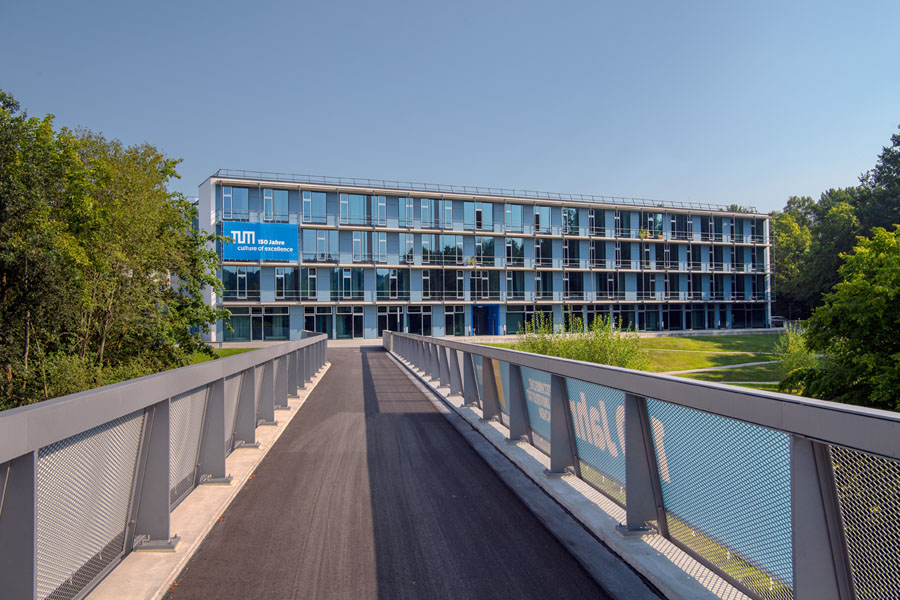Digital, international, interdisciplinary:
Agricultural sciences at TU Munich on the rise

"Food, land use, and the environment are centennial topics of global significance," said Bavarian Minister of State Prof. Kiechle at the signing of the target agreement. "Research in the agrarian sciences contributes significantly to solving socially relevant problems, such as the sustainable production of food or raw materials for industry and energy production. In this regard, the digital transformation of society also brings with it extraordinary opportunities and challenges, particularly for the agricultural sciences. Our reply to that is this target agreement."
President Prof. Herrmann views the agricultural sciences in the overall context of the university: "Today, the TUM possesses an extraordinarily broad and highly nuanced portfolio of subjects which allows it to open up interdisciplinary perspectives for the agricultural sciences. But these opportunities also need to be seized and capitalized on right now." As examples, he mentioned bio- and Geoinformatics; genome research; soil, climate, water, and biodiversity research; the TUM Campus Straubing for Biotechnology and Sustainability; nutritional medicine; food systems biology (Leibniz-Institute of the TUM); and, of course, the TUM's unique concentration of expertise in the computer and engineering sciences.
This wealth of opportunities will be used proactively from now on in order to "ensure that the agricultural sciences as a whole also become a powerhouse at the TUM." As an example, the president recalled the pivotal role of nanotechnology and rapid data processing in the control, regulation, optimization, and automation of agricultural production processes. Prof. Auerhammer from the TUM was one of the international pioneers of the GPS-based "precision farming" that everyone is now talking about. That was more than 20 years ago, when computers were still slow and sensors a lot less sensitive than they are today.
Agricultural sciences on the path to digitalization
The new professorship for "Digital Agriculture," which the university intends to fill with a prominent international personality, will be tasked with launching and coordinating the new role of the Hans Eisenmann-Forum as a "World Agricultural System Center." Apart from the new focus on digitalization, the institute will also continue to function as a central platform for dialog and communication with a wide range of fields in agricultural sciences, agricultural economics, politics, society, and associations. As part of a "TUMagrar Future Workshop," this is where important future issues will be brought up and recommendations compiled.
One other focus of the target agreement is the expansion of the agricultural science research stations. Already in the works is the fundamental modernization of livestock management at the Thalhausen facility near Freising. Furthermore, in the near future, the "Center for Integrated Infection Prevention," a research annex, will be built on the Life Science Campus in Freising-Weihenstephan at the interface between the fields of animal science, medicine, and informatics. A corresponding application for research buildings pursuant to section 91 b of the Basic Law (GG) is in the works.
In the target agreement, the TUM advocates professionally coordinated collaboration with neighboring institutions in Weihenstephan, the Weihenstephan-Triesdorf University of Applied Sciences, and the Bavarian State Research Center for Agriculture.
Basic research with real-world relevance
Additional measures of the target agreement involve the funding of new scientific talent, digital classrooms, collaborations with the relevant companies in the industry, and public relations that are effective nationally and internationally. For this, the Bavarian Ministry of the Sciences, the Bavarian Ministry of Food, Agriculture and Forestry, the TUM, as well as its Freising faculty are making available a total of approx. 1.5 million euros annually; during the term of the target agreement, an increase to 2.7 million euros is being sought. "Most of the funding is being provided by the Bavarian Ministry of the Sciences in order to turn Bavaria into a leading teaching and research hub for modern agricultural science," said minister of state Prof. Marion Kiechle at the signing of the target agreement. "The disproportionately high inflow of master students from other universities shows that we are on the right track," added Prof. Thomas Becker, dean of the faculty.
- Webseite of the Hans Eisenmann-Center – World Agricultural Systems Center